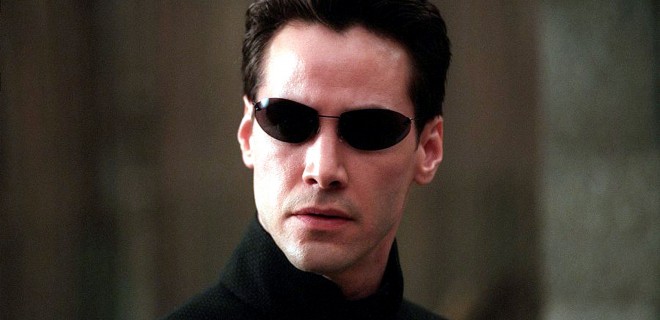
“Cyberpunk” is a highly stylised subgenre of science fiction that generally features advanced technology and science together with a typically crumbling society in the middle of a radical breakdown of shift in the social order. Normally it is set at some point in the not-so-distant future, mostly post-industrial dystopias, and focuses on “high tech, low life” aspects of society.
The genre heavily borrows techniques and aspects from film noir and hardboiled detective fiction as they often take a post modernistic outlook on the flaws of a technological society. The genre’s vision of a troubled, dystopian future contrasts with the generally utopian visions of the future popular in the 1940s and 1950s.
The “punk” part mostly comes from the antihero protagonists, who are often outcasts, mistaken criminals, misfits, visionaries and rebels. They are mostly manipulated into their low positions by the ranking members of society and the controlling government, but sometimes they just create their own situations by trying to follow their master vision.
A typical trope is a direct connection between the human brain and computer systems (ex. Existenz, Strange Days) which leads to the corruption of reality itself. The fictional prediction of mankind’s downfall as the internet evolves is forecast in many of these listed films, where giant corporation hold all the power and artificial intelligence is so advanced that it’s hard to tell them apart from anybody else.
20. Looper (2012)
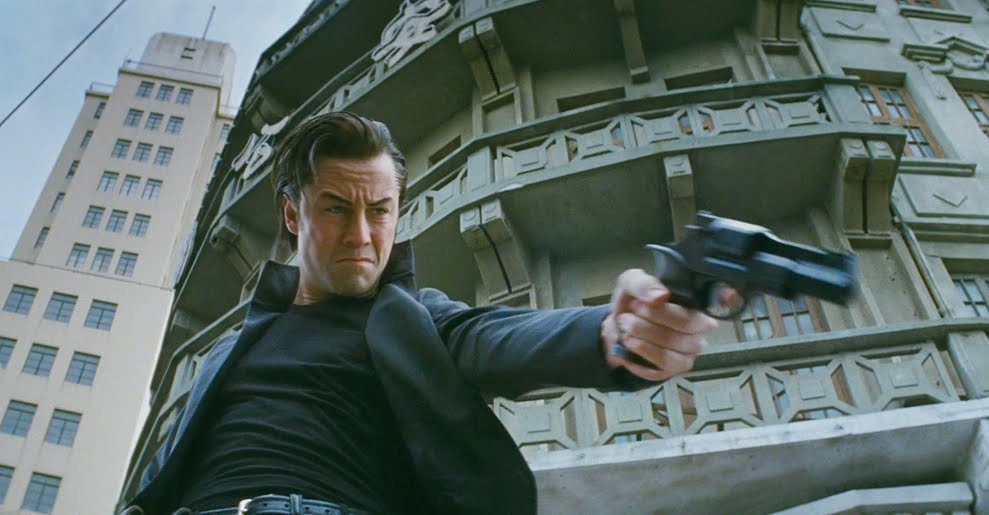
Most time travel movies are full of plot holes and face judgement when they run into trouble in the final scenes, when time is limited to clarify earlier questions and so they either hurriedly explain with a magic, impossible reason or simply ignore it and hope the happy ending is enough to excuse their mistakes. However, Rian Johnson’s innovative premise celebrates paradoxes of time travel by making a neatly worked out tight plot that blends mind bending science fiction with gritty, survivalist action.
In 2044, 25-year-old Joe (Joseph Gordon-Levitt with a couple of effects added to his bone structure) works as a “looper” for a crime syndicate. Since technology in the future has made it almost impossible to successfully dispose of murdered bodies, the syndicate uses time travel which was invented in 2074.
Loopers in 2044 kill and dispose of victims sent back in time from 2074 whose faces are hidden by a bag. However, in order to prevent connections to illegal time travel, when a looper retires, his future self (in Joe’s case – Bruce Willis) is also sent back as a target for his younger self, so as to close the loop.
19. The Fifth Element (1997)
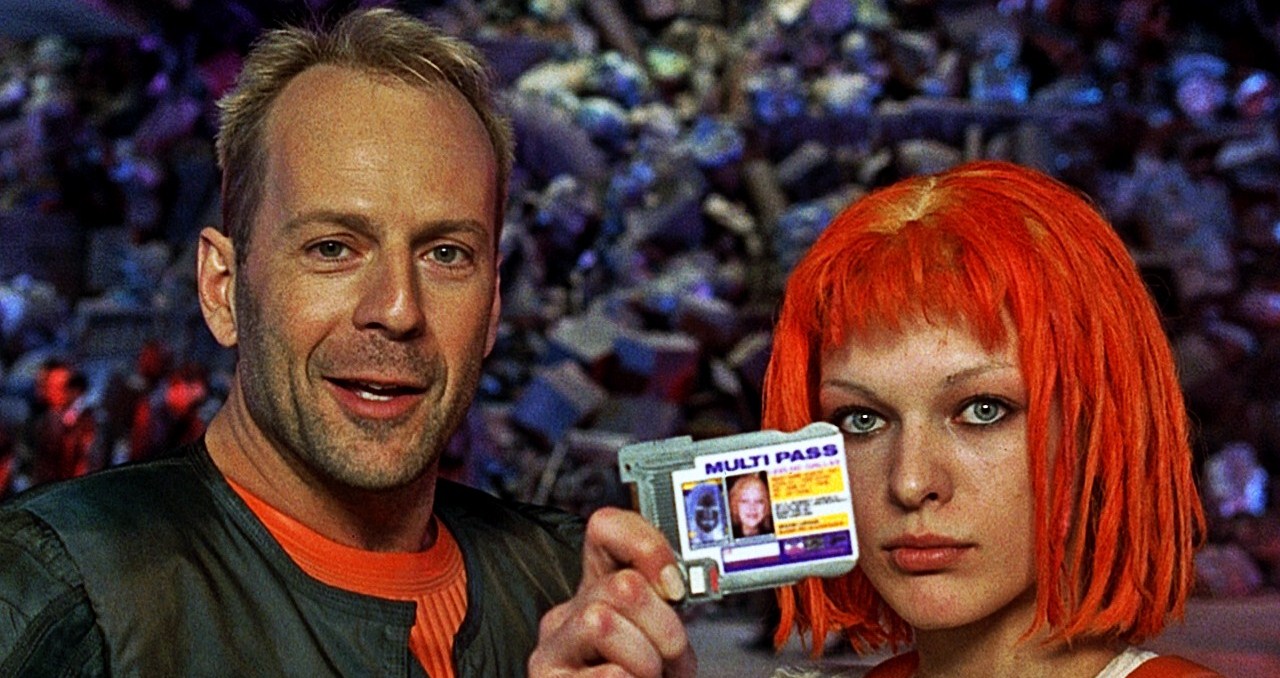
Luc Besson’s iconic English-language French science fiction action film follows flying taxicab and former Special Forces major Korben Dallas (Bruce Willis) as he protects the mysterious young woman Leeloo (Milla Jovovich) and the survival of the planet Earth in 2263.
In order to save Earth, they must recover four ancient mystical stones essential for the defence of Earth against an impending attack. However, the stones were retrieved by aliens known as Monsdoshewans in 1914 with the promise of their return when Earth needs them in order to prevent the great evil that appears every 5,000 years.
Their current contact with Earth is a priest from a secret order, Vito Cornelius (Ian Holm), and as they promised, they set off to return the stones which when combined together creates the ultimate weapon.
However, on their way, they are ambushed by Mangalores, a race hired by the industrialist Jean-Baptiste Emanuel Zorg (Gary Oldman), who has been instructed by the great evil to acquire the stones. While the stones are not on board, they do find the hand of The Fifth Element which they take to a New York City laboratory and use it to reconstruct a humanoid woman.
The movie is a mastery of technical credits with great cinematography, astounding special effects (by the same Digital Domain who created Total Recall’s Mars) and beyond imaginative production design.
The Fifth Element was nominated for Best Sound Editing at the 70th Academy Awards, and won the BAFTA Award for Best Special Visual Effects. It was also nominated for seven César awards, winning three: Best Director, Best Cinematography and Best Production Design.
18. Strange Days (1995)
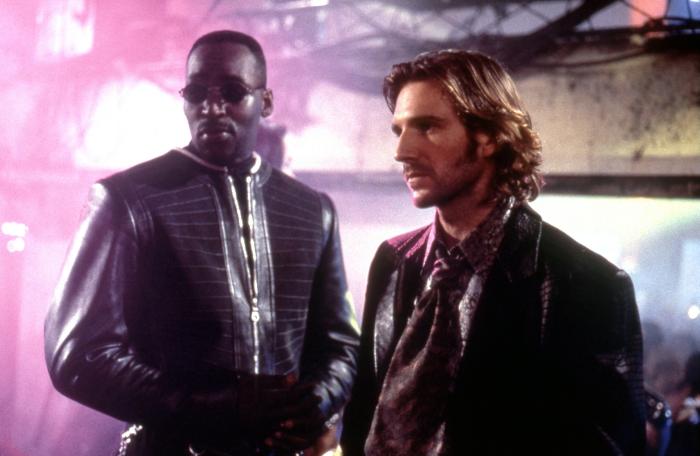
Directed by Kathryn Bigelow, and written by James Cameron and Jay Cocks, this 11th Hour science fiction thriller is set during the last two days of 1999 in rioting Los Angeles. In this parallel reality, there is an illegal electronic device which records events that the person wearing it is seeing called the “SQUID” (Superconducting Quantum Interference Device).
The footage can be played back through a mini-disk-like device known as a “deck: which not only allows whoever has it to see the point of view of whoever recorded it, but also experience the recorder’s memories and physical sensations since the tape was extracted from the cerebral cortex.
The film follows Lenny Nero (Ralph Fiennes), a former LAPD officer turned black vendor who deals in bootleg SQUID recordings, mostly in porn and thrill crime behaviours like robberies. However, he receives “blackjack” clips (snuff films) which include rape and murder on them from an anonymous source.
Lenny searches for the source and for his ex-girlfriend Faith (Juliette Lewis) who he fears is in danger with his trustworthy friends – bodyguard Lornette “Mace” Mason (Angela Bassett) who has a crush on him and private investigator Max Peltier (Tom Sizemore).
The film’s grunge futurism framed within a parallel crumbling past relies on the psychological thriller beneath it. The desperate, urgent pacing of the editing combined with the rioting atmosphere and the standout performances of Fiennes and Bassett create a dystopian feel within modern context.
The film was nominated for five Saturn Awards, with Bassett winning Best Actress, and Bigelow becoming the first woman to win the Saturn Award for Best Director.
17. The City Of Lost Children (1995)
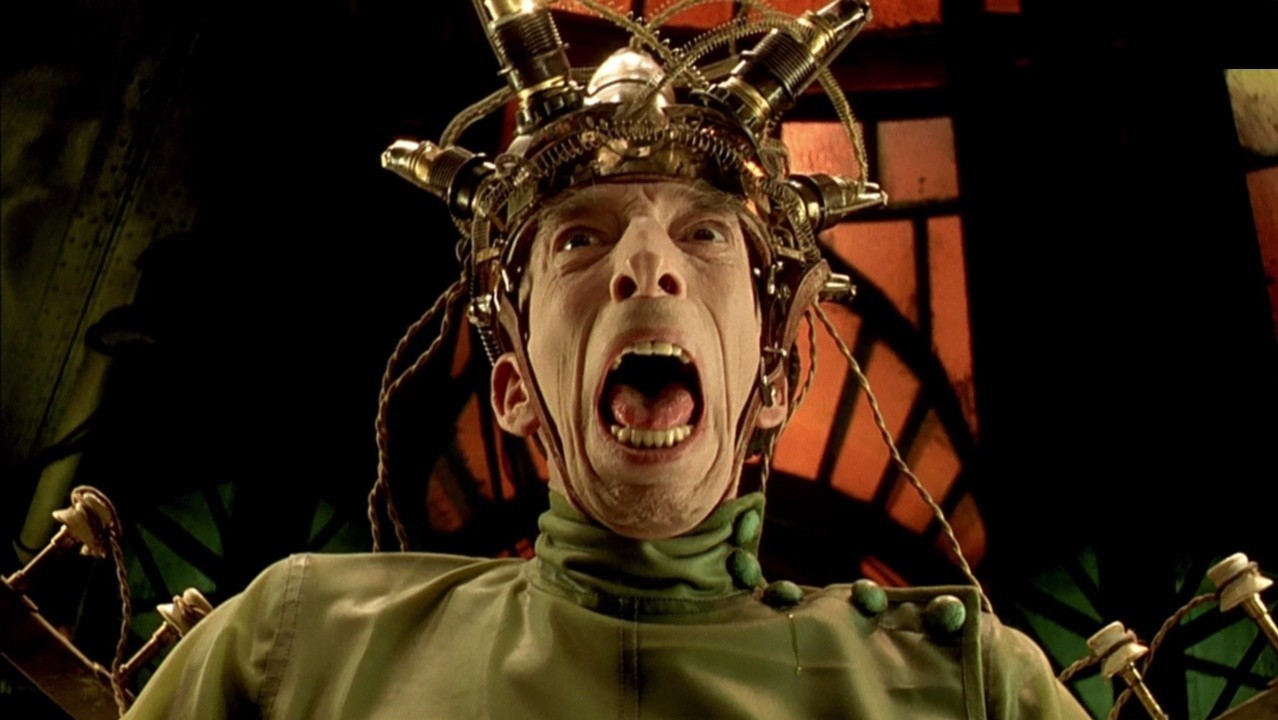
Marc Caro’s and Jean-Pierre Jeunet’s 1995 French-German-Spanish complex fantasy cyberpunk film centres around Krank (Daniel Emilfork), a demented scientist whose bioengineered “family” of clones kidnap children for him so he can steal their dreams, as he is incapable of having his own.
It also follows carnival strongman One (Ron Perlman) who tries to find his kidnapped little brother Denree along and the bio-mechanical cult with the help of a little girl, Miette (Judith Vittet), a member of a thieves’ guild of orphaned children.
The film is stylistically similar to the previous and subsequent Jeunet films, “Delicatessen” and “Amélie”, using many of the same actors like Dominique Pinon and Ticky Holgado, together with the memorable set design, chromatic utilisation and the peculiar costuming makes it another steampunk classic.
16. eXistenZ (1999)
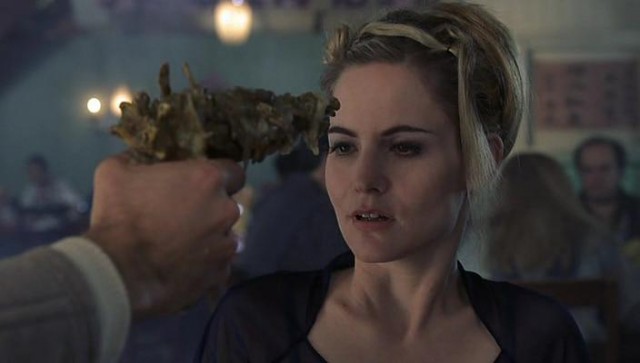
David Cronenberg is no stranger to blended sci-fi body horror flicks so together with Videodrome, he gives his perspective on how humans interact and maybe overly rely on the continuously advancing technologies that surround them – in this case with regards to video games and the misperceptions of reality.
Set in the near-future, organic virtual reality game consoles known as “game pods” have replaced electronic ones. In order to play, “bio-ports” must be installed in the players’ spines and their game pods would be inserted into their outlet through biotechnological umbilical cords which fully immerses the player into the virtual reality.
The world’s preeminent game designer, Allegra Geller (Jennifer Jason Leigh), is testing her latest game, “eXistenZ”, with a focus group at a seminar. She is shot by a realist who thinks that she is helping “deform” reality and as he is subsequently gunned down, security guard (and marketing trainee) Ted Pikul (Jude Law) rushes to help Geller escape. She discovers that her pod has been damaged and thus her only copy of the eXistenZ game could have been i8mpaired too.
In order to test it, she must plug into the game with another player – a reluctant Pikul who would need black-marketeer Gas (Willem Dafoe) to install a bio-port into his body so they can play.
15. Dark City (1998)
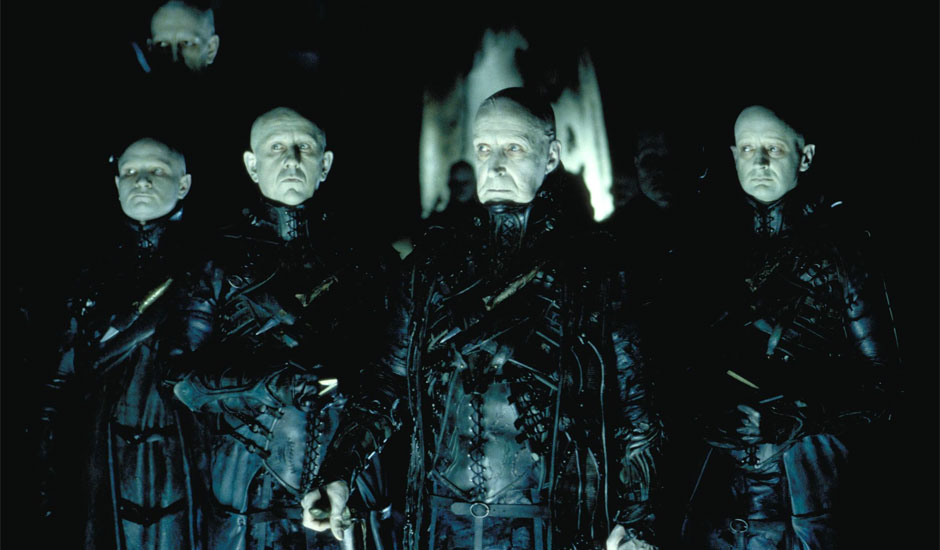
Directed by Alex Proyas, the neo-noir follows John Murdoch (Rufus Sewell) who wakes up in n a hotel bathtub, suffering from amnesia and therefore knows as much as the audience does. He soon receives a phone call from Dr. Daniel Schreber (Kiefer Sutherland), who tells him to run because a group of men (known as the Strangers) are after him and discovers a brutally murdered corpse of a woman in his room.
He flees but the Strangers are not the only ones who are trying to find him – he is also sought after by police inspector Frank Bumstead (William Hurt) as a serial killer but Murdoch cannot remember killing anybody.
He eventually discovers his own name, finds that he has a wife named Emma (Jennifer Connelly) and most importantly that he has mind powers – which the Strangers also possess. The city they all live in is in a perpetual state of darkness yet no one besides Murdoch seems to realise this. At midnight, he watches as everyone except himself drops off as the Strangers stop time and physically rearrange the city as well as changing people’s identities and memories.
The film was a box office bomb, but received mainly positive reviews and has become a cult classic.
The film resembles “Metropolis” as both are parables resembling Plato’s Allegory of the Cave that show an individual who sees the changes in the norm caused and question it only to be shut down by all others. However, with the Strangers who remove and change all the things that make one’s human – identity, memories, relationships – the film asks when all these are constantly shifting, what makes them human now?